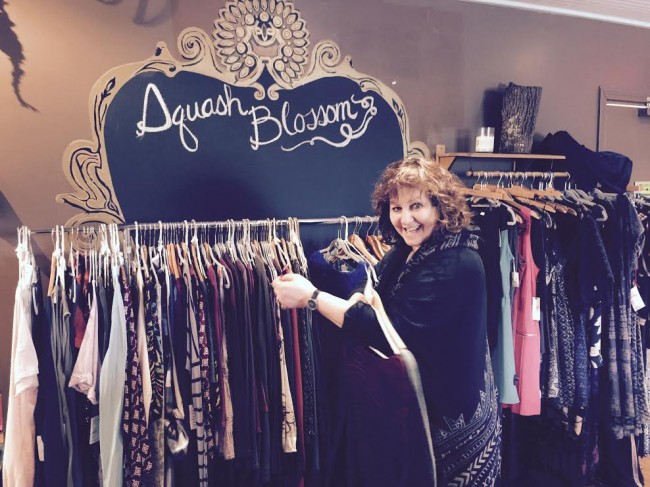No matter how uncomfortable it is to talk about selling of children for sex, the reality that
demands it is staggering. Atlanta ranks first in sexual exploitation in the U.S and about
200-300 girls are trafficked on a monthly basis. There is legal reason to be hopeful with
the legislative passage this week of Safe Harbor/Rachel’s Law, cracking down on
sexual exploitation of children. On the other hand, there is a rising rate of concern about
the understudied sexual exploitation of boys.
At its annual legislative breakfast, youthSpark nonprofit organization hosted several
keynote lawmakers including Senator Renee Unterman (R-Buford) who authored the
recently signed law. In it, minors will be restricted from being charged with prostitution
as well as offenders will be fined $2,500 per penalty. “Lots of tough negotiation to pass
this law but this shows that Georgia is equally committed to rehabilitating the victims
and offenders will be punished for profiting off of innocence,” she said. Levied fines will
pay into the Sexually Exploited Children Fund to assist victims.
Seated next to Unterman on the panel was Rep. Andy Welch (R-110) who worked side-
by-side with her to ensure passage across Senate and House said, “The key to this
bill’s passage was the young survivor, Rachel’s testimony. She gave credibility and bore
witness to those that are in the shadows.” The now 20-year-old survivor, namesake of
the bill, is also the recipient of youthSpark’s 2015 annual advocacy award.
Based at the Fulton County Juvenile Court, youthSpark, works on the front lines to end
human trafficking on both the supply and demand side. Their work protects girls but lots
of boys too as they unveiled recent findings in a ground-breaking study on exploited
boys of Georgia.
Commissioned by the Dunn Foundation, youthSpark research team captured data that
showed a telling statistic: 1 out of 5 boys sexually exploited is a minor (17 or below).
Sex trade for boys is happening primarily online and with the advent of new internet
sites cropping daily, it makes it difficult for law enforcement to conduct investigations.
Thusly, buyers are becoming bolder because the risk for arrest is minimal. On the flip
side, however; if a buyer is arrested (study shows buyers account for 10% of
prostitution-related arrests) there is a 70% lower recidivism rate.
Sen. Unterman says the problem of child sex trafficking is problematic not only in the
city of Atlanta but also in the suburbs. Recent study confirms by geocaching posted ad
problem is not inner-city Atlanta but far reaching suburbs and all across state.
Rectifying the issue involves firstly looking for exploited boys not by “visual cues such
as tattoos and piercings,” said Alex Trouteaud, Executive Director of youthSpark. He
continues, “We have to ask the right questions and immunize before trafficking actually
happens especially the high-risk youth.”
Partnering with legal professionals and trained social workers will help in addressing the
problem as well as building on early intervention and prevention.
demands it is staggering. Atlanta ranks first in sexual exploitation in the U.S and about
200-300 girls are trafficked on a monthly basis. There is legal reason to be hopeful with
the legislative passage this week of Safe Harbor/Rachel’s Law, cracking down on
sexual exploitation of children. On the other hand, there is a rising rate of concern about
the understudied sexual exploitation of boys.
At its annual legislative breakfast, youthSpark nonprofit organization hosted several
keynote lawmakers including Senator Renee Unterman (R-Buford) who authored the
recently signed law. In it, minors will be restricted from being charged with prostitution
as well as offenders will be fined $2,500 per penalty. “Lots of tough negotiation to pass
this law but this shows that Georgia is equally committed to rehabilitating the victims
and offenders will be punished for profiting off of innocence,” she said. Levied fines will
pay into the Sexually Exploited Children Fund to assist victims.
Executive Director, Alex Trouteaud, speaks during the annual breakfast event.
Seated next to Unterman on the panel was Rep. Andy Welch (R-110) who worked side-
by-side with her to ensure passage across Senate and House said, “The key to this
bill’s passage was the young survivor, Rachel’s testimony. She gave credibility and bore
witness to those that are in the shadows.” The now 20-year-old survivor, namesake of
the bill, is also the recipient of youthSpark’s 2015 annual advocacy award.
Based at the Fulton County Juvenile Court, youthSpark, works on the front lines to end
human trafficking on both the supply and demand side. Their work protects girls but lots
of boys too as they unveiled recent findings in a ground-breaking study on exploited
boys of Georgia.
Commissioned by the Dunn Foundation, youthSpark research team captured data that
showed a telling statistic: 1 out of 5 boys sexually exploited is a minor (17 or below).
Sex trade for boys is happening primarily online and with the advent of new internet
sites cropping daily, it makes it difficult for law enforcement to conduct investigations.
Thusly, buyers are becoming bolder because the risk for arrest is minimal. On the flip
side, however; if a buyer is arrested (study shows buyers account for 10% of
prostitution-related arrests) there is a 70% lower recidivism rate.
Sen. Unterman says the problem of child sex trafficking is problematic not only in the
city of Atlanta but also in the suburbs. Recent study confirms by geocaching posted ad
problem is not inner-city Atlanta but far reaching suburbs and all across state.
Rectifying the issue involves firstly looking for exploited boys not by “visual cues such
as tattoos and piercings,” said Alex Trouteaud, Executive Director of youthSpark. He
continues, “We have to ask the right questions and immunize before trafficking actually
happens especially the high-risk youth.”
Partnering with legal professionals and trained social workers will help in addressing the
problem as well as building on early intervention and prevention.
 |
| WABE's co-anchor, Rose Scott, was the event's panel moderator. |
 |
| Georgia Attorney General Sam Olens, spoke at the youthSpark annual breakfast meeting. |










